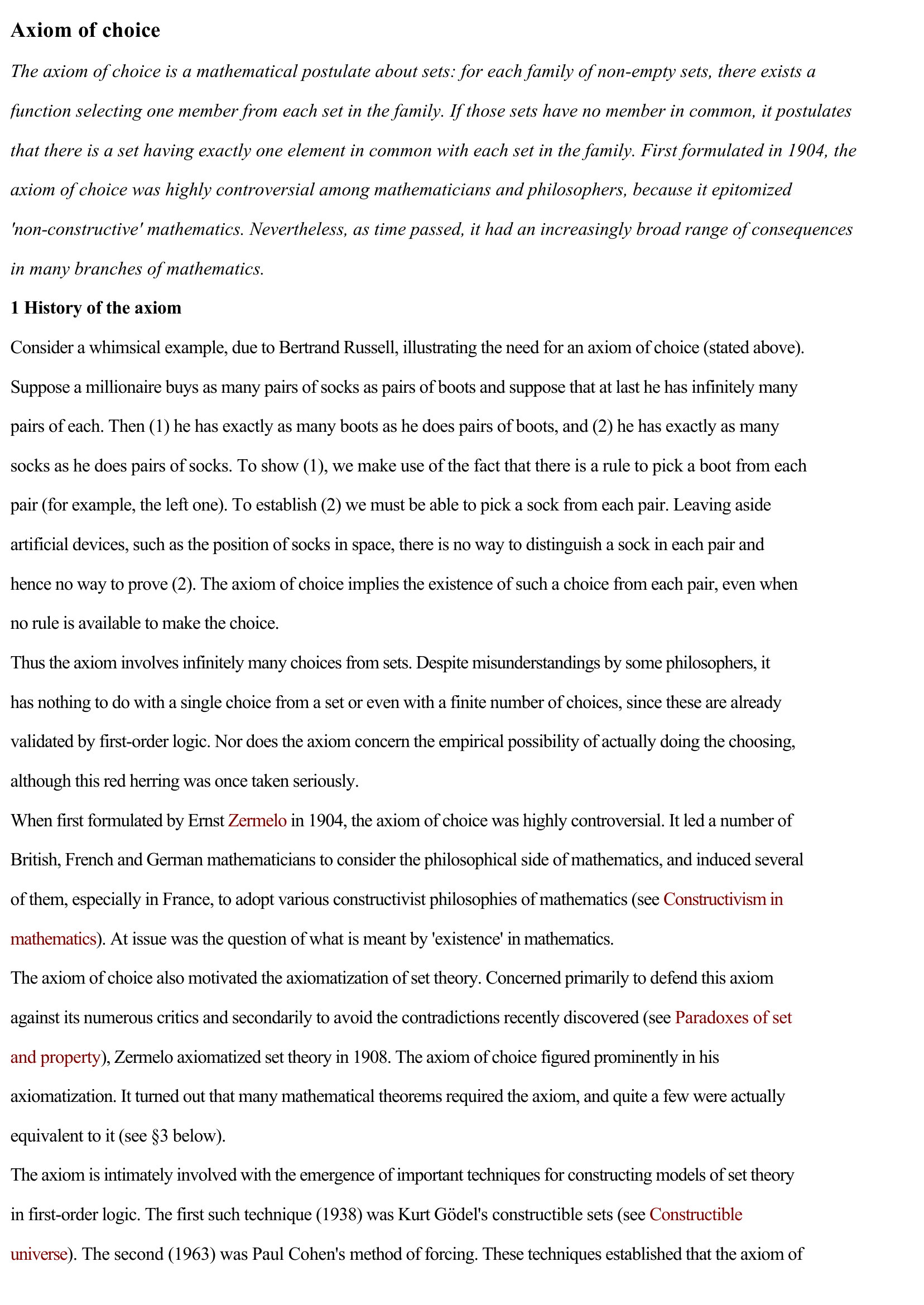Axiom of choice
Publié le 16/05/2020
Extrait du document
«
Axiom of choice
The axiom of choice is a mathematical postulate about sets: for each family of non-empty sets, there exists a
function selecting one member from each set in the family.
If those sets have no member in common, it postulates
that there is a set having exactly one element in common with each set in the family.
First formulated in 1904, the
axiom of choice was highly controversial among mathematicians and philosophers, because it epitomized
'non -constructive' mathematics.
Nevertheless, as time passed, it had an increasingly broad range of consequences
in many branches of mathematics.
1 History of the axiom
Consider a whimsical example, due to Bertrand Russell, illustrating the need for an axiom of choice (stated above).
Suppose a millionaire buys as many pairs of socks as pairs of boots and suppose that at last he has infinitely many
pairs of each.
Then (1) he has exactly as many boots as he does pairs of boots, and (2) he has exactly as many
socks as he does pairs of socks.
To show (1), we make use of the fact that there is a rule to pick a boot from each
pair (for example, the left one).
To establish (2) we must be able to pick a sock from each pair.
Leaving aside
artificial devices, such as the position of socks in space, there is no way to distinguish a sock in each pair and
hence no way to prove (2).
The axiom of choice implies the existence of such a choice from each pair, even when
no rule is available to make the choice.
Thus the axiom involves infinitely many choices from sets.
Despite misunderstandings by some philosophers, it
has nothing to do with a single choice from a set or even with a finite number of choices, since these are already
validated by first-order logic.
Nor does the axiom concern the empirical possibility of actually doing the choosing,
although this red herring was once taken seriously.
When first formulated by Ernst Zermelo in 1904, the axiom of choice was highly controversial.
It led a number of
British, French and German mathematicians to consider the philosophical side of mathematics, and induced several
of them, especially in France, to adopt various constructivist philosophies of mathematics (see Constructivism in
mathematics ).
At issue was the question of what is meant by 'existence' in mathematics.
The axiom of choice also motivated the axiomatization of set theory.
Concerned primarily to defend this axiom
against its numerous critics and secondarily to avoid the contradictions recently discovered (see Paradoxes of set
and property ), Zermelo axiomatized set theory in 1908.
The axiom of choice figured prominently in his
axiomatization.
It turned out that many mathematical theorems required the axiom, and quite a few were actually
equivalent to it (see §3 below).
The axiom is intimately involved with the emergence of important techniques for constructing models of set theory
in first-order logic.
The first such technique (1938) was Kurt Gödel's constructible sets (see Constructible
universe ).
The second (1963) was Paul Cohen's method of forcing.
These techniques established that the axiom of.
»
↓↓↓ APERÇU DU DOCUMENT ↓↓↓

































